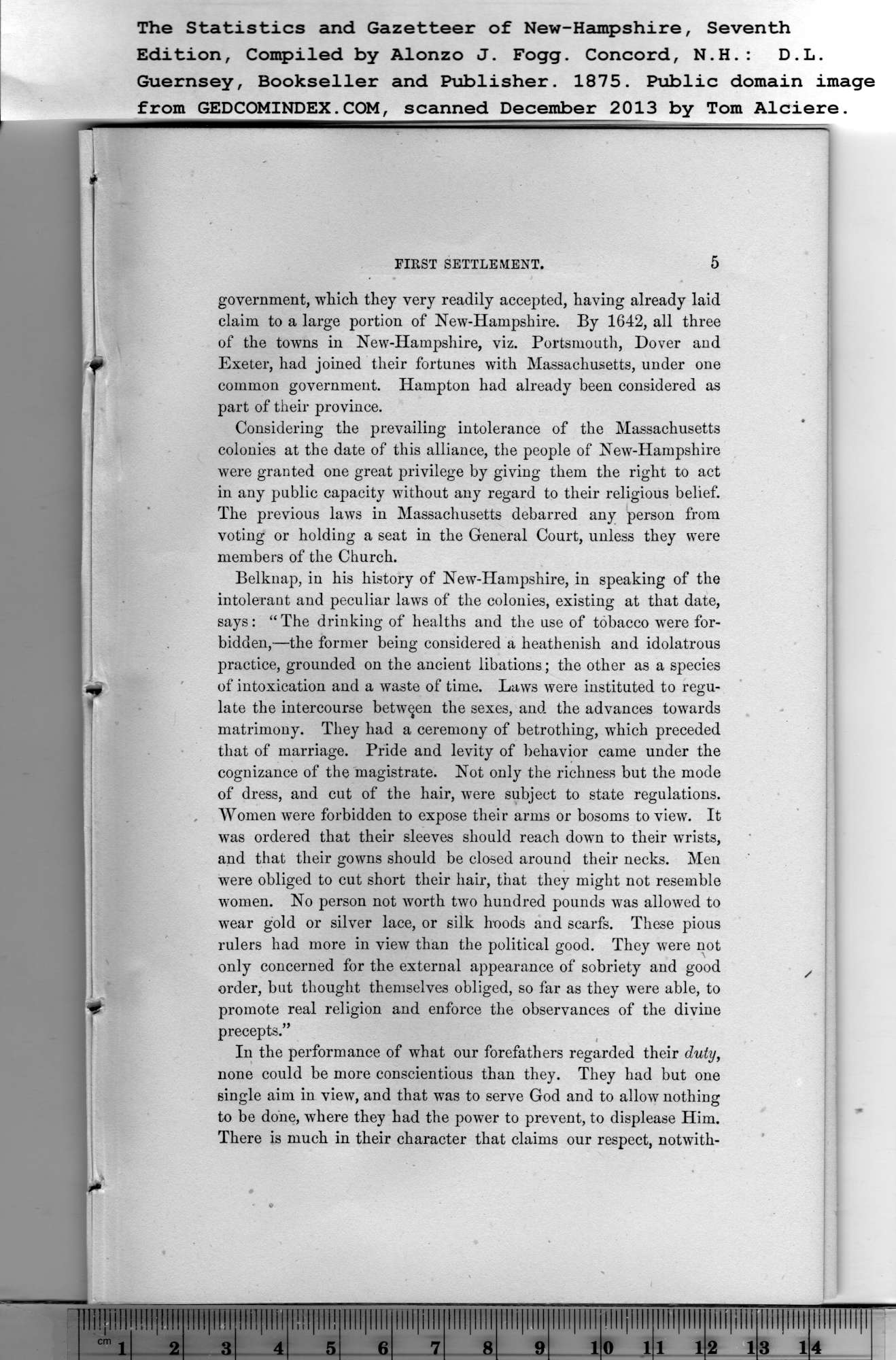|
FIRST SETTLEMENT. 5
government, which they very readily accepted, having already laid
claim to a large portion of New-Hampshire. By 1642, all three
of the towns in New-Hampshire, viz. Portsmouth, Dover and
Exeter, had joined their fortunes with Massachusetts, under one
common government. Hampton had already been considered as
part of their province.
Considering the prevailing intolerance of the Massachusetts
colonies at the date of this alliance, the people of New-Hampshire
were granted one great privilege by giving them the right to act
in any public capacity without any regard to their religious belief.
The previous laws in Massachusetts debarred any person from
voting or holding a seat in the General Court, unless they were
members of the Church.
Belknap, in his history of New-Hampshire, in speaking of the
intolerant and peculiar laws of the colonies, existing at that date,
says: “ The drinking of healths and the use of tobacco were for-
bidden,—the former being considered a heathenish and idolatrous
practice, grounded on the ancient libations; the other as a species
of intoxication and a waste of time. Laws were instituted to regu-
late the intercourse between the sexes, and the advances towards
matrimony. They had a ceremony of betrothing, which preceded
that of marriage. Pride and levity of behavior came under the
cognizance of the magistrate. Not only the richness but the mode
of dress, and cut of the hair, were subject to state regulations.
Women were forbidden to expose their arms or bosoms to view. It
was ordered that their sleeves should reach down to their wrists,
and that their gowns should be closed around their necks. Men
were obliged to cut short their hair, that they might not resemble
women. No person not worth two hundred pounds was allowed to
wear gold or silver lace, or silk hoods and scarfs. These pious
rulers had more in view than the political good. They were not
only concerned for the external appearance of sobriety and good
order, but thought themselves obliged, so far as they were able, to
promote real religion and enforce the observances of the divine
precepts.”
In the performance of what our forefathers regarded their duty,
none could be more conscientious than they. They had but one
single aim in view, and that was to serve God and to allow nothing
to be done, where they had the power to prevent, to displease Him.
There is much in their character that claims our respect, notwith-
PREVIOUS PAGE ... NEXT PAGE
This page was written in HTML using a program written in Python 3.2
|
